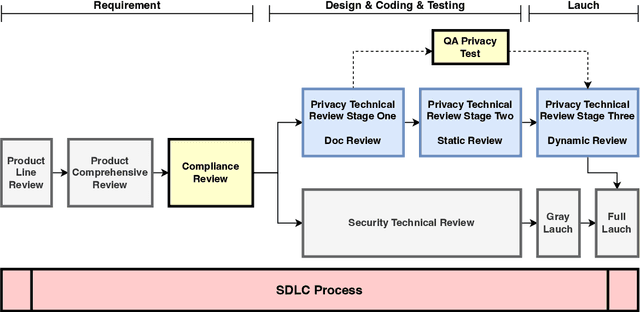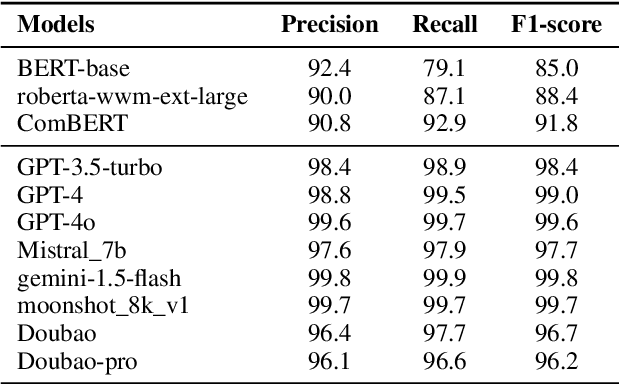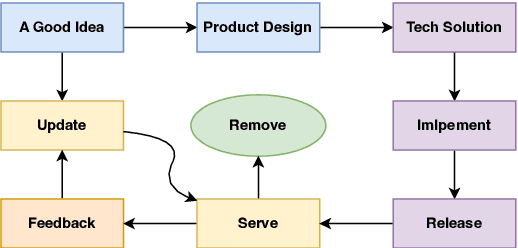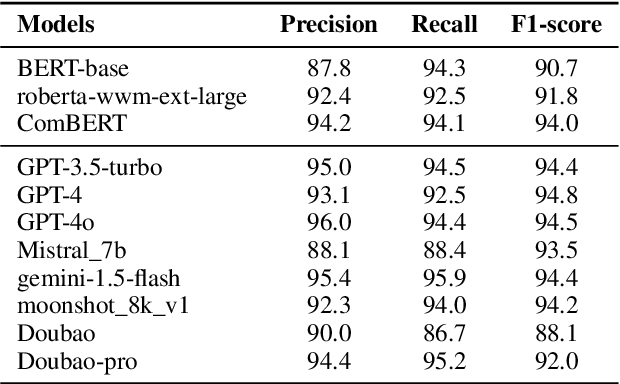Xichou Zhu
How Privacy-Savvy Are Large Language Models? A Case Study on Compliance and Privacy Technical Review
Sep 04, 2024



Abstract:The recent advances in large language models (LLMs) have significantly expanded their applications across various fields such as language generation, summarization, and complex question answering. However, their application to privacy compliance and technical privacy reviews remains under-explored, raising critical concerns about their ability to adhere to global privacy standards and protect sensitive user data. This paper seeks to address this gap by providing a comprehensive case study evaluating LLMs' performance in privacy-related tasks such as privacy information extraction (PIE), legal and regulatory key point detection (KPD), and question answering (QA) with respect to privacy policies and data protection regulations. We introduce a Privacy Technical Review (PTR) framework, highlighting its role in mitigating privacy risks during the software development life-cycle. Through an empirical assessment, we investigate the capacity of several prominent LLMs, including BERT, GPT-3.5, GPT-4, and custom models, in executing privacy compliance checks and technical privacy reviews. Our experiments benchmark the models across multiple dimensions, focusing on their precision, recall, and F1-scores in extracting privacy-sensitive information and detecting key regulatory compliance points. While LLMs show promise in automating privacy reviews and identifying regulatory discrepancies, significant gaps persist in their ability to fully comply with evolving legal standards. We provide actionable recommendations for enhancing LLMs' capabilities in privacy compliance, emphasizing the need for robust model improvements and better integration with legal and regulatory requirements. This study underscores the growing importance of developing privacy-aware LLMs that can both support businesses in compliance efforts and safeguard user privacy rights.
Do Large Language Models Possess Sensitive to Sentiment?
Sep 04, 2024Abstract:Large Language Models (LLMs) have recently displayed their extraordinary capabilities in language understanding. However, how to comprehensively assess the sentiment capabilities of LLMs continues to be a challenge. This paper investigates the ability of LLMs to detect and react to sentiment in text modal. As the integration of LLMs into diverse applications is on the rise, it becomes highly critical to comprehend their sensitivity to emotional tone, as it can influence the user experience and the efficacy of sentiment-driven tasks. We conduct a series of experiments to evaluate the performance of several prominent LLMs in identifying and responding appropriately to sentiments like positive, negative, and neutral emotions. The models' outputs are analyzed across various sentiment benchmarks, and their responses are compared with human evaluations. Our discoveries indicate that although LLMs show a basic sensitivity to sentiment, there are substantial variations in their accuracy and consistency, emphasizing the requirement for further enhancements in their training processes to better capture subtle emotional cues. Take an example in our findings, in some cases, the models might wrongly classify a strongly positive sentiment as neutral, or fail to recognize sarcasm or irony in the text. Such misclassifications highlight the complexity of sentiment analysis and the areas where the models need to be refined. Another aspect is that different LLMs might perform differently on the same set of data, depending on their architecture and training datasets. This variance calls for a more in-depth study of the factors that contribute to the performance differences and how they can be optimized.
 Add to Chrome
Add to Chrome Add to Firefox
Add to Firefox Add to Edge
Add to Edge